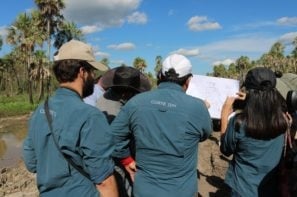In more than 190 cases, the Inter-American Court has ordered more than 1,000 reparations to victims of human rights violations.
Monitoring compliance with judgments is a fundamental task for the work of the Inter-American Court of Human Rights in its function to protect victims of violations of their rights enshrined in our American Convention on Human Rights
In the Inter-American System for the Protection of Human Rights, Article 63.1 of the American Convention on Human Rights constitutes the conventional basis for the Court to determine in its Judgments what are the measures that the State must adopt to comply with said obligation of repair. On the basis of the provisions of the aforementioned article, within the powers of the Court is the power to provide that the consequences of the situation that has configured the violation of international rights or obligations provided for in the Convention be repaired. Said article also grants the Inter-American Court a wide margin of judicial discretion to determine the measures that will allow the consequences of the violation to be repaired.



On the other hand, Article 68 of the American Convention establishes the conventional obligation that States have to implement, both in the international and internal sphere, in good faith, and in a prompt and complete manner, the provisions of the Court in the Judgments, and Failure to comply with the State may incur an international wrongful act. This obligation binds all the Powers and organs of the State, that is, that all the Powers of the State (Executive, Legislative, Judicial, or other branches of the Public Power) and other public or state authorities, of any level, have the duty to comply in good faith with international law, and may not invoke provisions of constitutional law or other aspects of domestic law to justify a failure to comply with the obligations contained in said treaty.
In addition, the Court has established the execution of the Judgments of the Inter-American Court is a fundamental part of the right of access to international justice. Therefore, when a State does not comply with the decisions of the Inter-American Court or does not execute the reparations provided by it, the victims of human rights violations are denied that right.

In this way, the Inter-American Court of Human Rights periodically supervises compliance with the provisions set forth in the judgments of the Inter-American Court towards the States.